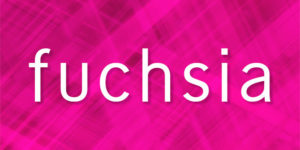Mozilla earlier this week launched the first full edition of its Internet Health Report.
The report is “an open source effort to explore the state of human life on the Internet,” wrote Mozilla Executive Director Mark Surman in an online post.
It consists of research and analysis about the Internet compiled by researchers, engineers, data scientists, policy analysts and artists in Mozilla’s extended community.
The digital rights, open source, and Internet freedom movements stand for the idea that it is possible to build a digital world that is open, accessible and welcoming to all, according to Mozilla.
The Internet Health Report is based on the principles of the recently expanded Mozilla Manifesto.
“The optimist in me sincerely hopes this will be successful,” said Charles King, principal analyst at Pund-IT.
That said, “you also have to ask how many outside the Mozilla community are paying attention,” he told LinuxInsider.
Mozilla “is seeking to see the moral high ground as governments explore regulating the Internet by jumping on the ethics bandwagon early and often,” suggested Michael Jude, research manager at Stratecast/Frost & Sullivan.
Fake News Front and Center
In this first issue of the Internet Health Report, fake news and misinformation are in the spotlight.
The topic engendered considerable interest, Surman said, and data collection became the central focus. The discussion encompassed several issues:
- Precision-targeted ads;
- Bots and fake accounts;
- Facebook’s domination of news distribution; and
- Insufficient Web literacy among the general public.
Taken together, these activities and circumstances provide the fuel for fraud and abuse, along with very bad real world outcomes, Surman said.
“Mozilla is trying to stand out as an organization with the user’s best interests at heart,” said Rob Enderle, principal analyst at the Enderle Group.
“This is well-timed, given that the issues Facebook has with data collection — and Cambridge Analytica — likely have people concerned about all tech firms at the moment,” he told LinuxInsider.
Also included in the report:
- A piece on engineers in Brazil building an open source bot that automatically inspects politicians’ expenses and discloses officials’ use of public money for private purchases; and
- A story about FIRST, a global network of volunteer cybersecurity experts.
The Open, Accessible Digital Myth
There has long been speculation that governments, companies and organizations would carve up the Internet, and that it would end up reflecting the real world — with territories, borders, and battles between different groups.
“Absolutely,” Frost’s Jude told LinuxInsider. “Look at China’s attempts to close off their Internet from the rest of the world, and the EU attempting to impose privacy rights on the entire Web, regardless of where a company’s based.”
Meanwhile, the United States and its allies, also known as the “Five Eyes,” have been spying on one another’s citizens online, and sharing information to get around domestic restrictions.
In the business world, “companies always try to game the regulatory process,” Jude remarked.
Although some large players dominate the space, the Internet “is still very much of a free-for-all,” said Dan Goldstein, president of Page 1 Solutions.
The Internet Health Report is “an attempt to get people to think about what they’re doing and what tools they’re using with the subtext that we all need to be safer,” Enderle remarked.
“Unfortunately, Mozilla doesn’t have much reach on a good day,” he pointed out, “and with Trump and Facebook news chewing up all available bandwidth, much more powerful entities are having trouble getting attention at the moment.”
The collection of consumer data by Internet companies is a concern, but “It would be a significant mistake to eliminate free services like Facebook and Google Search,” Page 1’s Goldstein told LinuxInsider.
That’s not likely to happen in our capitalistic economy, he said, but “it’s important that we encourage all consumers to protect their private information both online and offline.”























































Anybody who uses facebook now is very stupid. Its a spying tool, and you are the product, its why its "free". The same as all these other "social" media sites. But fake news lol, so Fox, Sky, BBC, CNN, RT etc.. also put out nothing but fake news and propaganda. There is no point looking at any of it anymore